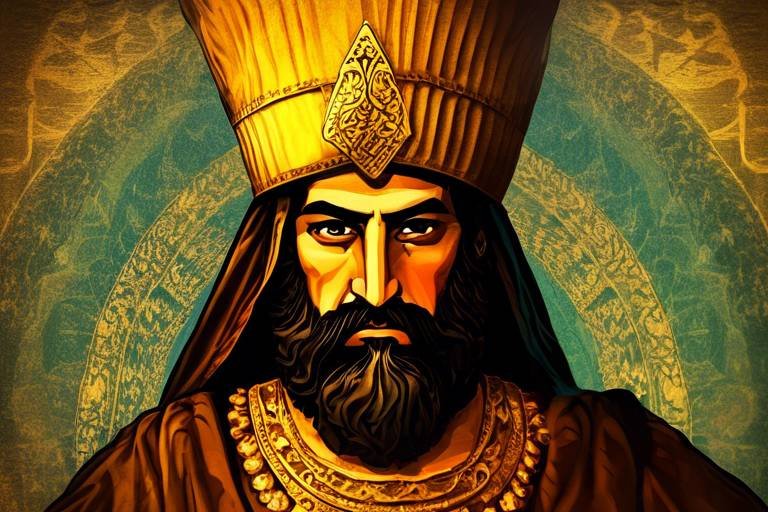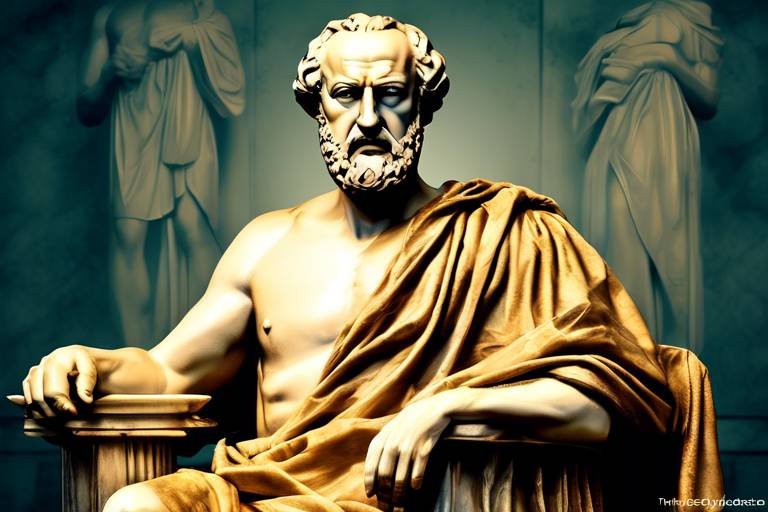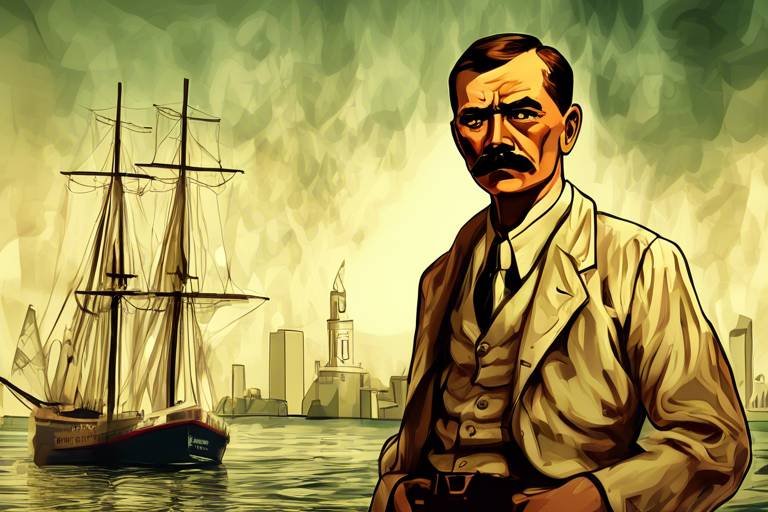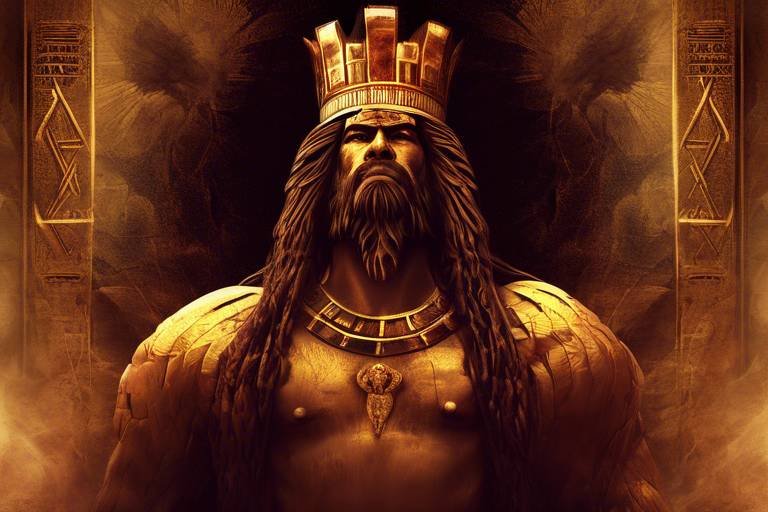Constantine: The First Christian Emperor
Constantine the Great, also known as Constantine I, was a pivotal figure in Roman history, marking a significant shift in the empire's religious and political landscape. Born in 272 AD in Naissus, Moesia (modern-day Serbia), Constantine rose to power through a series of military victories and strategic alliances. His reign as Emperor of Rome from 306 to 337 AD left an indelible mark on the history of Christianity and the Roman Empire.

Early Life and Rise to Power
Exploring the life and impact of Constantine, the Roman Emperor who played a significant role in the rise of Christianity and the Roman Empire's transition to a Christian state.
Constantine, born Flavius Valerius Constantinus, entered the world in Naissus, Moesia (modern-day Serbia), around 272 AD. His father, Constantius Chlorus, was a Roman general, and his mother, Helena, was of humble origins. Constantine's early years were marked by military campaigns alongside his father, which laid the foundation for his future leadership.
After the death of his father in 306 AD, Constantine was proclaimed Emperor by his troops in York, England. This event marked the beginning of his rise to power, as he embarked on a series of military campaigns to secure his position as the sole ruler of the Roman Empire.
Constantine's military prowess and strategic acumen were evident in his victory over rival claimants to the throne, ultimately leading to his undisputed rule as Emperor of Rome. His ascent to power was characterized by both military conquests and political maneuvering, solidifying his position as a formidable leader.
Discussing the significance of the Edict of Milan issued by Constantine in 313 AD, granting religious tolerance to Christians and ending persecution.
Detailing the pivotal battle where Constantine defeated Maxentius, leading to his conversion to Christianity and subsequent rule as a Christian Emperor.
Analyzing Constantine's role in promoting Christianity, building churches, and influencing the religion's status within the Roman Empire.
Exploring Constantine's convening of the Council of Nicaea in 325 AD to address theological disputes and establish early Christian doctrine.
Evaluating the lasting impact of Constantine's reign on Christianity, the Roman Empire, and the historical development of Europe.
Examining Constantine's founding of Constantinople (modern-day Istanbul) as the new capital of the Eastern Roman Empire.
Discussing the implications of Constantine's endorsement of Christianity as the state religion and its effects on religious history.

Edict of Milan
Exploring the life and impact of Constantine, the Roman Emperor who played a significant role in the rise of Christianity and the Roman Empire's transition to a Christian state.
Examining Constantine's upbringing, military career, and the events that led to his ascension as the Emperor of Rome.
Discussing the significance of the Edict of Milan issued by Constantine in 313 AD, granting religious tolerance to Christians and ending persecution.
Detailing the pivotal battle where Constantine defeated Maxentius, leading to his conversion to Christianity and subsequent rule as a Christian Emperor.
Analyzing Constantine's role in promoting Christianity, building churches, and influencing the religion's status within the Roman Empire.
Exploring Constantine's convening of the Council of Nicaea in 325 AD to address theological disputes and establish early Christian doctrine.
Evaluating the lasting impact of Constantine's reign on Christianity, the Roman Empire, and the historical development of Europe.
Examining Constantine's founding of Constantinople (modern-day Istanbul) as the new capital of the Eastern Roman Empire.
Discussing the implications of Constantine's endorsement of Christianity as the state religion and its effects on religious history.
The Edict of Milan, issued by Constantine in 313 AD, marks a significant turning point in Roman history. This decree granted religious tolerance to Christians, putting an end to the brutal persecutions they had faced for centuries. By allowing Christians to practice their faith freely, Constantine not only promoted religious freedom but also set the stage for Christianity to flourish within the Roman Empire.

Battle of the Milvian Bridge
The stands as a defining moment in the life of Constantine, marking a significant turning point both in his personal beliefs and the course of the Roman Empire. The battle took place on October 28, 312 AD, near Rome, between the forces of Constantine and his rival Maxentius, who sought to maintain his control over the Western Roman Empire.
Constantine's army, though outnumbered, displayed remarkable strategic prowess and determination during the battle. As the two forces clashed at the Milvian Bridge, the outcome hung in the balance. Legend has it that Constantine received a vision before the battle, seeing a cross of light in the sky with the inscription "In this sign, you shall conquer." Inspired by this divine sign, Constantine ordered his soldiers to mark their shields with the symbol of the Chi-Rho, a monogram of Christ.
The battle raged fiercely, with both sides fighting fiercely for supremacy. In a decisive moment, the bridge collapsed under the weight of Maxentius' retreating troops, leading to a significant victory for Constantine. Maxentius himself drowned in the Tiber River during the chaos, securing Constantine's position as the sole ruler of the Western Roman Empire.
Following his victory at the Milvian Bridge, Constantine attributed his success to the Christian God and embraced the faith himself. This pivotal moment marked the beginning of Constantine's conversion to Christianity and his subsequent efforts to promote and protect the Christian religion within the Roman Empire.
The Battle of the Milvian Bridge not only solidified Constantine's hold on power but also set the stage for the eventual Christianization of the Roman Empire. It was a moment of both military triumph and spiritual awakening, shaping the course of history in profound ways.

Christianity and the Roman Empire
Christianity played a pivotal role in the Roman Empire during Constantine's reign, marking a significant shift in the empire's religious landscape. Constantine's embrace of Christianity not only impacted his personal beliefs but also had profound effects on the empire as a whole. As the first Roman Emperor to convert to Christianity, Constantine actively promoted the faith, leading to the construction of numerous churches and the spread of Christian influence throughout the empire.
One of the most notable events during Constantine's rule was the Council of Nicaea in 325 AD, where he gathered Christian bishops to address theological disputes and establish a unified Christian doctrine. This council laid the foundation for early Christian beliefs and practices, shaping the future of the religion in the Roman Empire.
Constantine's support for Christianity also had political implications, as he sought to unify the empire under a common religious identity. By endorsing Christianity as the state religion, Constantine aimed to strengthen social cohesion and create a sense of shared purpose among his subjects. This decision had far-reaching consequences for the future of Christianity and its relationship with the Roman state.
Furthermore, Constantine's patronage of the Christian faith led to the construction of grand churches and the promotion of Christian symbols and iconography throughout the empire. These visible displays of Christian devotion served to solidify the religion's place in Roman society and further distinguish it from traditional Roman paganism.
In conclusion, Constantine's embrace of Christianity had a profound impact on the Roman Empire, shaping the course of religious history in Europe. His efforts to promote and institutionalize Christianity laid the groundwork for its eventual dominance in the Roman world and set the stage for the development of Christian civilization in the centuries to come.

Council of Nicaea
The Council of Nicaea holds a significant place in Christian history, convened by Emperor Constantine in 325 AD. This gathering brought together hundreds of bishops to address theological disputes and establish early Christian doctrine. One of the primary issues tackled was the nature of the relationship between God the Father and Jesus, leading to the formulation of the Nicene Creed, a foundational statement of Christian belief.
At the Council of Nicaea, Constantine played a pivotal role in maintaining order and unity among the bishops, ensuring that the decisions made would have a lasting impact on the Christian faith. The event marked a crucial step in defining the core tenets of Christianity and solidifying its position within the Roman Empire.
The Nicene Creed, formulated during this council, became a cornerstone of Christian theology, emphasizing the divinity of Jesus and his role in salvation. This creed continues to be recited in churches worldwide, highlighting the enduring legacy of the Council of Nicaea and Constantine's influence on the development of Christian doctrine.

Legacy and Impact
Constantine, the Roman Emperor, holds a significant place in history for his pivotal role in the rise of Christianity and the transition of the Roman Empire into a Christian state. His life and impact have shaped the course of religious and political history in profound ways.
Constantine's journey to becoming Emperor was marked by a remarkable upbringing and a successful military career. His strategic prowess and leadership skills paved the way for his ascension to the throne of Rome, where he would leave an indelible mark on history.
The Edict of Milan, issued by Constantine in 313 AD, was a groundbreaking decree that granted religious tolerance to Christians, ending centuries of persecution. This landmark edict marked a turning point in the history of Christianity and paved the way for its eventual rise to prominence.
The Battle of the Milvian Bridge was a defining moment in Constantine's life, where he emerged victorious over Maxentius. It was during this battle that Constantine experienced a profound spiritual awakening, leading to his conversion to Christianity and his subsequent rule as a Christian Emperor.
Constantine's influence on Christianity was profound, as he actively promoted the religion, built churches, and elevated its status within the Roman Empire. His support for Christianity reshaped the religious landscape of the empire and set the stage for its widespread adoption.
In 325 AD, Constantine convened the Council of Nicaea to address theological disputes within Christianity and establish a unified doctrine. This historic gathering laid the foundation for early Christian beliefs and solidified Constantine's role in shaping the faith.
Constantine's legacy reverberates through history, leaving a lasting impact on Christianity, the Roman Empire, and the development of Europe. His reign marked a turning point in the course of civilization, shaping the future of nations and religions.
One of Constantine's enduring legacies is the founding of Constantinople, known today as Istanbul. This new capital of the Eastern Roman Empire became a center of culture, trade, and power, shaping the course of history in the Byzantine Empire.
Constantine's endorsement of Christianity as the state religion had far-reaching implications for religious history. The official recognition of Christianity transformed the faith from a persecuted minority to a dominant force in the Roman Empire, forever altering the religious landscape.

Constantinople
Constantinople, known as Byzantium in ancient times, holds a significant place in history as the capital of the Eastern Roman Empire founded by Emperor Constantine the Great. This strategic city, situated at the crossroads of Europe and Asia, became a symbol of power and culture under Constantine's rule. The establishment of Constantinople marked a new era in the Roman Empire, shifting the focus from Rome to the eastern territories.
Constantine envisioned Constantinople as a grand metropolis that would rival Rome in splendor and influence. The city's strategic location on the Bosporus Strait provided it with natural defenses and facilitated trade routes between the East and the West. Constantinople quickly became a melting pot of cultures, drawing influence from Roman, Greek, and Eastern traditions.
One of the key features of Constantinople was its architectural marvels, including the Hagia Sophia, a grand cathedral that symbolized the fusion of Christianity and imperial power. The city's skyline was dotted with impressive structures, showcasing Constantine's vision of a majestic capital that reflected the glory of the Roman Empire.
Constantinople's significance extended beyond its physical attributes; it served as a center of political, economic, and religious power in the Byzantine Empire. The city's strategic position allowed it to control vital trade routes, connecting the Mediterranean world with the Silk Road and fostering a prosperous economy.
Constantine's decision to establish Constantinople as the new capital had far-reaching implications for the Roman Empire and the future of Europe. The city became a beacon of civilization and a stronghold of Christianity, shaping the course of history for centuries to come.

Christianity as the State Religion
Constantine's endorsement of marked a monumental shift in the religious landscape of the Roman Empire. By embracing Christianity and promoting it as the official religion, Constantine not only transformed the spiritual fabric of the empire but also solidified his own power and authority.
One of the key implications of Christianity becoming the state religion was the unification of religious practices across the empire. With Constantine's support, Christianity gained widespread acceptance and influence, leading to the decline of traditional Roman pagan beliefs and rituals.
Moreover, Constantine's decision to establish Christianity as the state religion had political implications as well. By aligning himself with the growing Christian population, Constantine strengthened his rule and garnered support from a significant portion of the Roman populace.
As Christianity gained prominence within the empire, the construction of churches and religious institutions flourished. Constantine's patronage of Christian architecture and infrastructure not only promoted the spread of the faith but also left a lasting legacy of Christian influence in the urban landscape.
Furthermore, the designation of Christianity as the state religion paved the way for legal and social reforms that reflected Christian values and ethics. Laws and policies were enacted to align with Christian principles, shaping the moral compass of Roman society.
In essence, Constantine's endorsement of was a watershed moment in the history of the Roman Empire, setting the stage for the fusion of religious and political authority that would define the medieval period and beyond.
Frequently Asked Questions
- Who was Constantine?
Constantine was the first Roman Emperor to convert to Christianity and played a crucial role in the transition of the Roman Empire to a Christian state.
- What was the significance of the Edict of Milan?
The Edict of Milan, issued by Constantine in 313 AD, granted religious tolerance to Christians, ending their persecution and allowing them to practice their faith freely.
- How did Constantine's victory at the Battle of the Milvian Bridge impact his reign?
Constantine's victory over Maxentius at the Battle of the Milvian Bridge led to his conversion to Christianity and subsequent rule as a Christian Emperor, shaping the course of history.
- What was the Council of Nicaea and why was it significant?
The Council of Nicaea, convened by Constantine in 325 AD, aimed to address theological disputes within Christianity and establish early Christian doctrine, laying the foundation for the religion's future development.
- What was Constantine's legacy on the Roman Empire?
Constantine's reign had a lasting impact on Christianity, the Roman Empire, and the historical development of Europe, with his founding of Constantinople and endorsement of Christianity as the state religion being key aspects of his legacy.



















